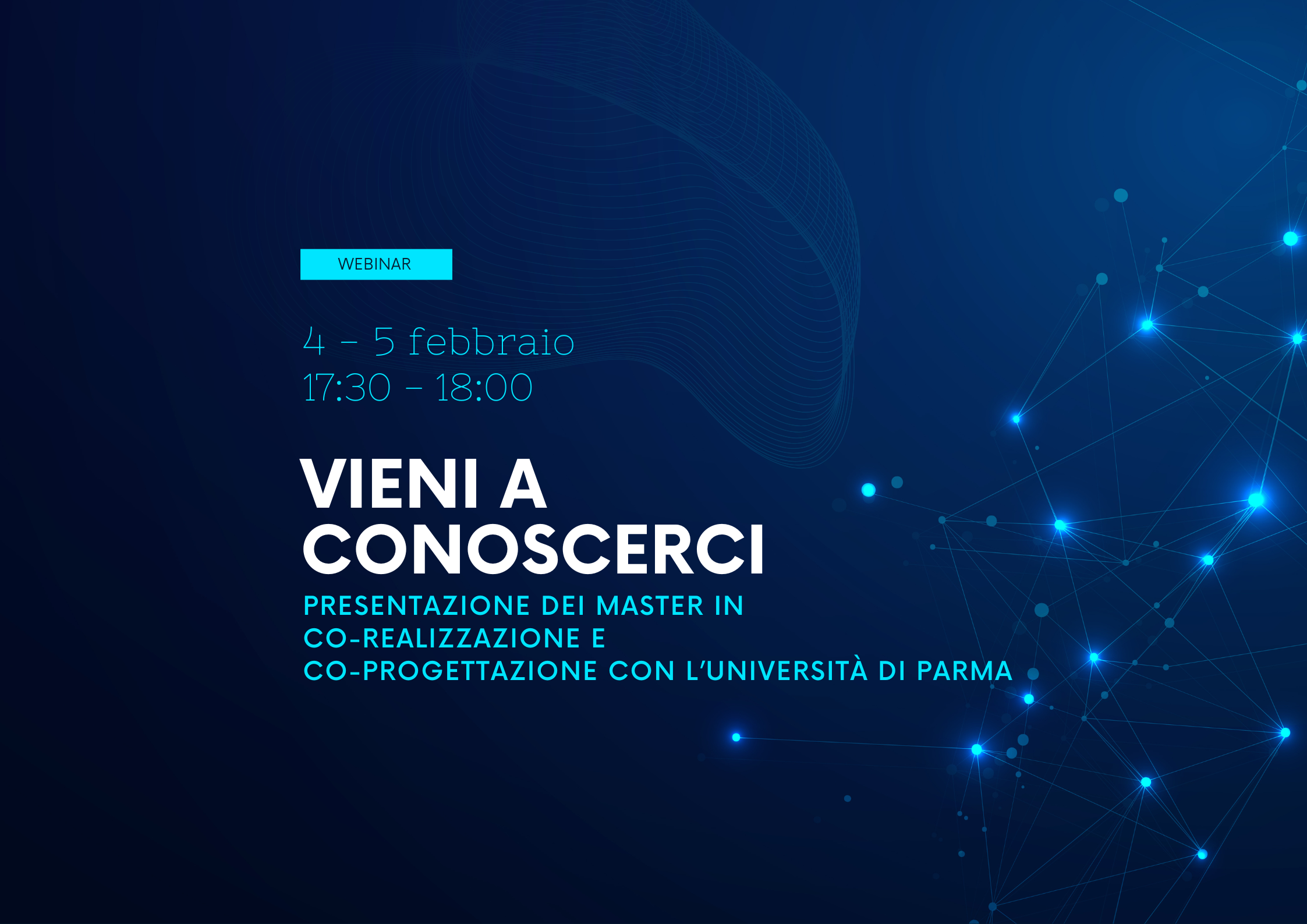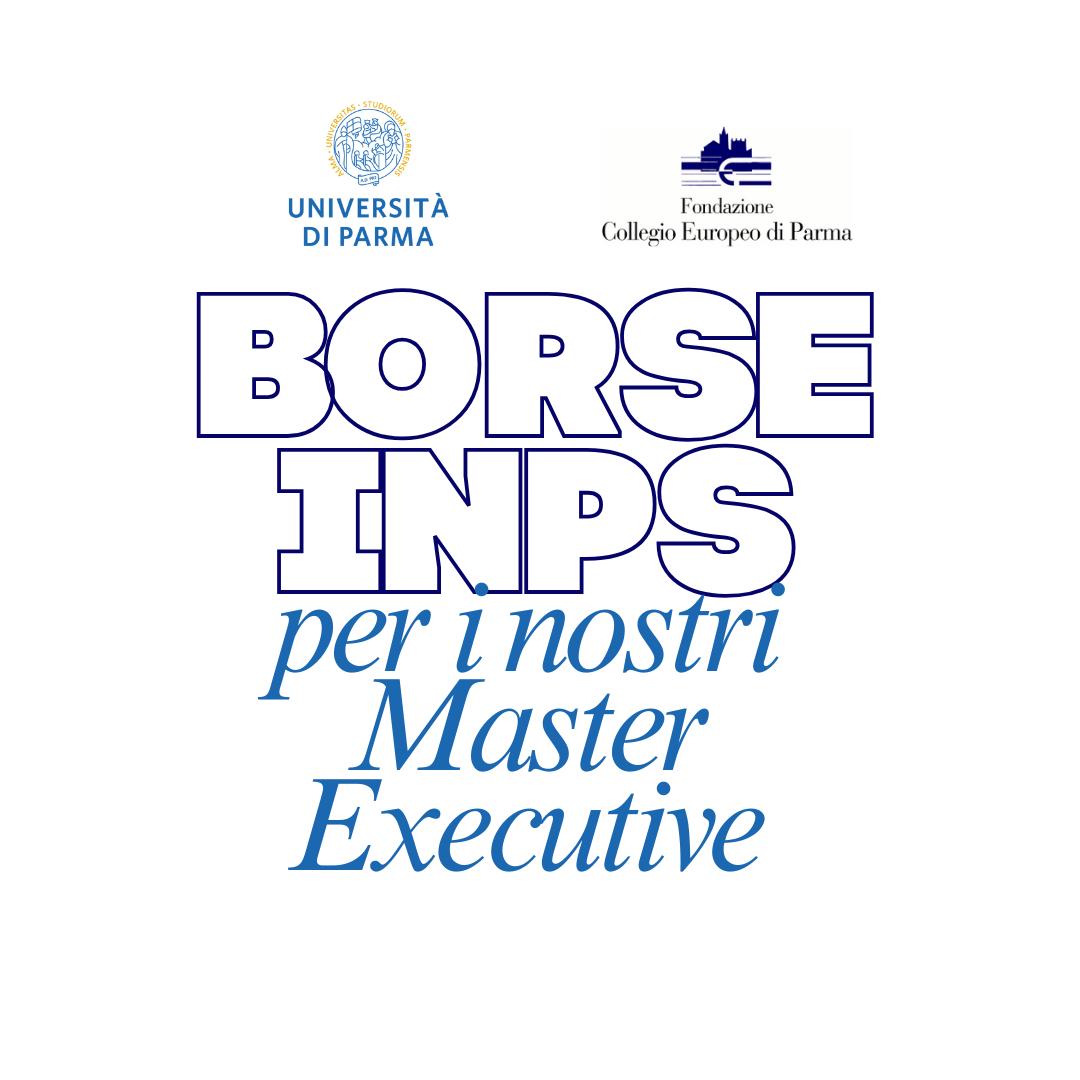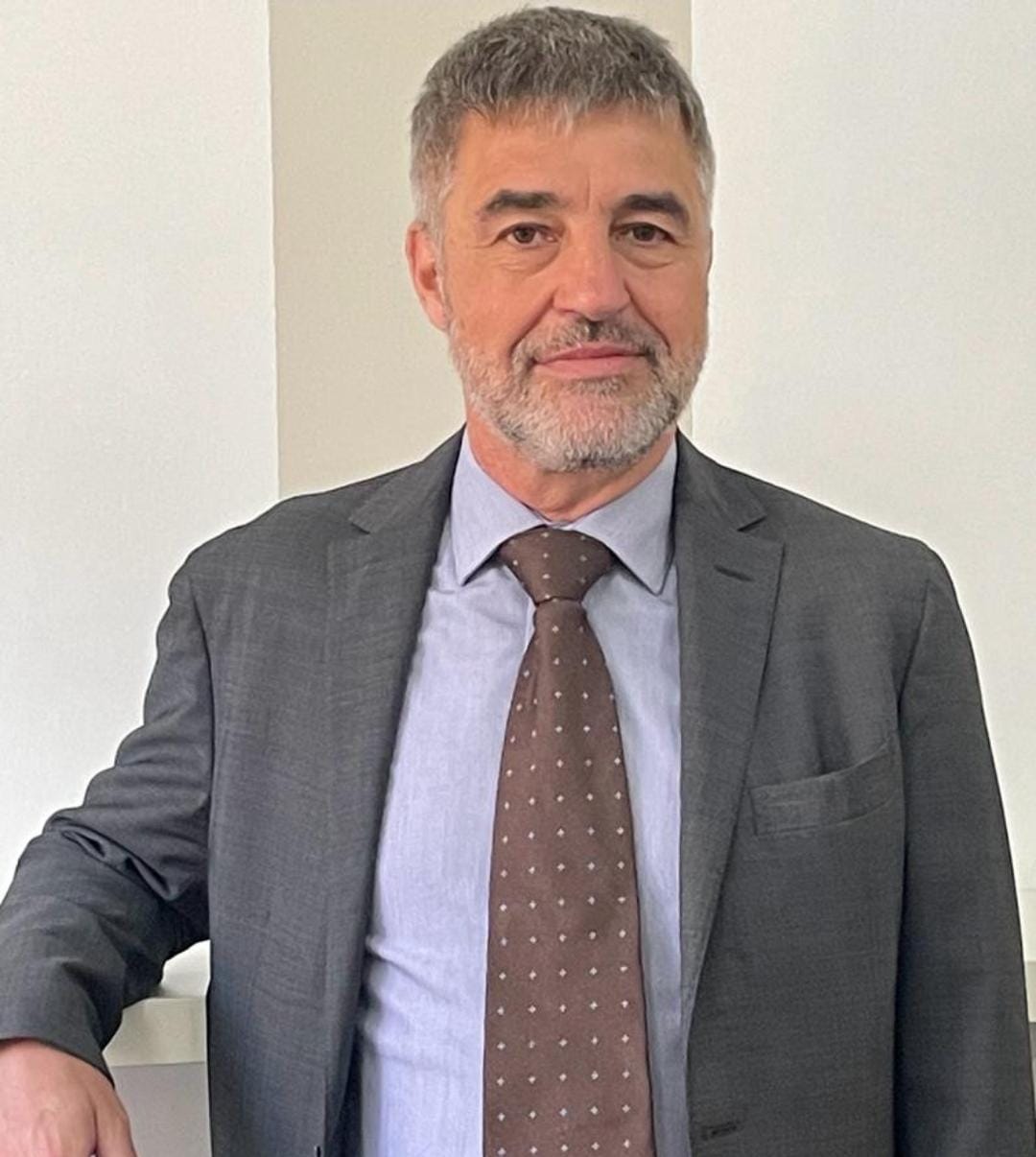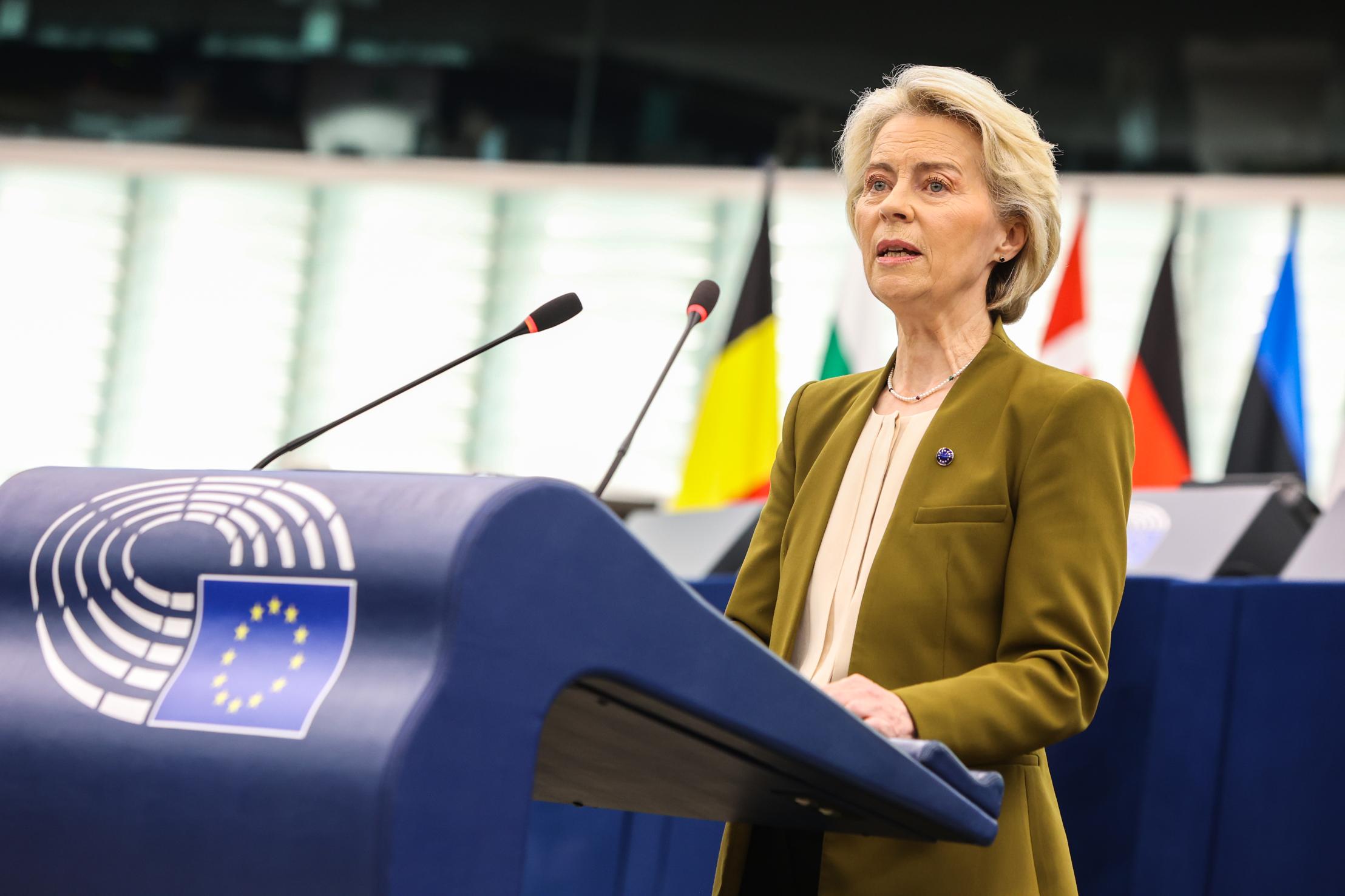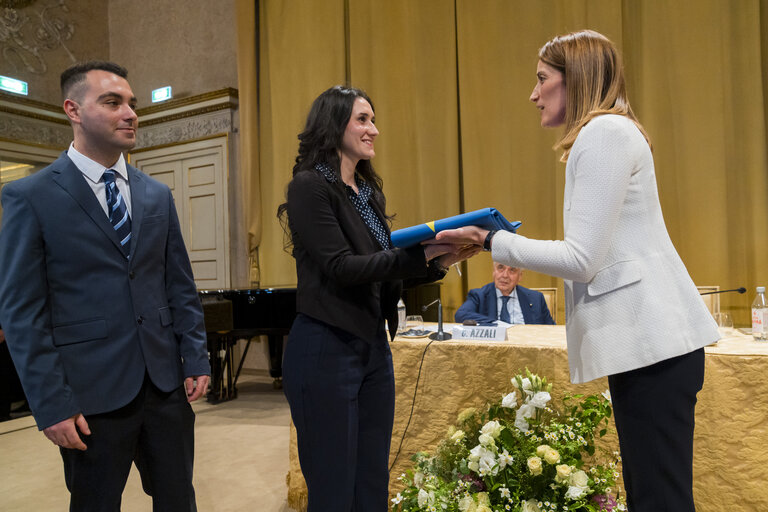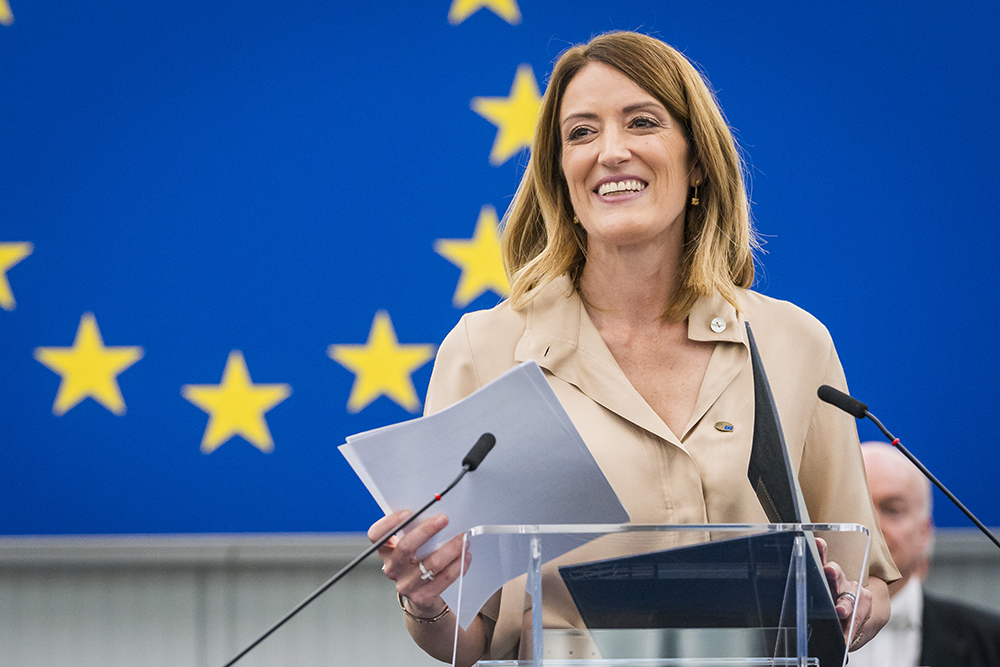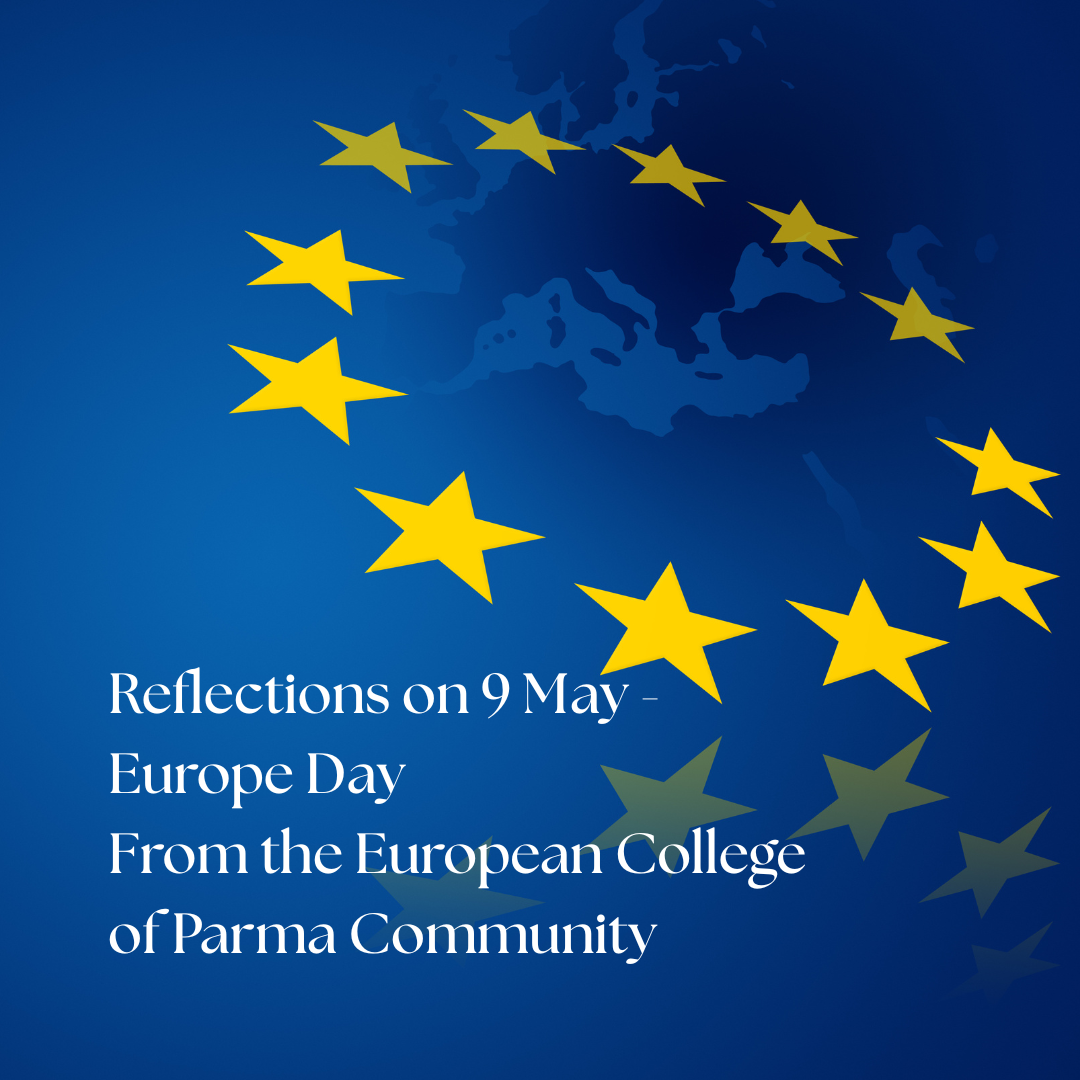What does Europe mean to me? Marco
Europe, to me, is the fertile value of diversity, the vital yearning for freedom, the deep roots of history.
Europe is the intoxicating magic of art, the primordial beauty of nature, the solid and peaceful strength of culture.
It is the place of sacred respect for the individual and, at the same time, of the individual’s responsibility toward the community.
Where the pluralism of ideas, the protection of rights, and the promotion of talents—free to compete and cooperate—create the conditions to generate widespread prosperity and well-being.
Europe, for all of this, is my home. Europe is my home.
And I hope—and wholeheartedly wish—that it will always remain so, even stronger and more open to the world, for my children and for my grandchildren.
What does Europe mean to me?
To me Europe is a space where community, security, opportunity, and freedom come together. Yet, for many, today Europe is distant, uncertain, even irrelevant. That’s why I believe education on European issues is essential to bridge these gaps, understand our shared challenges, and strengthen our sense of belonging.
Only through knowledge can we become aware citizens and active participants in shaping the Union’s future.
What does Europe mean to me? Francesca Pallucchini
To me, Europe represents both a lived reality and a shared aspiration, a project rooted in peace, unity, and the belief that cooperation can transcend conflict. As we commemorate the 75th anniversary of the Schuman Declaration, I reflect not only on Europe’s historical achievements but on what the European Union continues to mean for my generation and for the future we are shaping together.
Europe is, first and foremost, a space of peace. The Schuman Declaration envisioned a continent where war would no longer be “merely unthinkable, but materially impossible”. This vision laid the foundations for unprecedented stability, replacing centuries of rivalry with dialogue and interdependence. For me, the EU is a daily reminder that diplomacy, compromise, and shared institutions can overcome even the most deeply rooted divisions.
Europe is also a community of values. Democracy, the rule of law, human dignity, and solidarity are not abstract principles. They are guiding lights that shape policies, protect citizens, and strengthen our societies.
As someone deeply interested in European law and public policy, I admire the EU’s commitment to upholding these values in an increasingly complex and challenging global landscape. They are not always easy to defend, but they remain essential.
Personally, Europe has given me opportunities that would not have existed without integration. The ability to study in different languages, to collaborate with peers across borders, to travel freely and feel at home in multiple countries, these experiences have shaped who I am. They have made me more open, more curious, and more conscious of the responsibility that comes with being a European citizen.
Europe is more than institutions and freedoms. It is a union of diversity. What inspires me most is how the EU turns difference into strength, how 27 nations, each with its own language, history, and identity, come together to legislate, to negotiate, and to imagine a common future. It is not always smooth, but the very act of coming together is what gives Europe its unique character and resilience.
At the same time, Europe is a project still in progress. New challenges like climate change, migration, democratic backsliding, and geopolitical instability, demand renewed commitment. The Schuman Declaration was bold in its time, but its spirit of innovation and cooperation is just as necessary today. Being European means engaging actively in this evolving story, contributing ideas, holding institutions accountable, and never taking unity for granted.
To me, Europe is hope, not naïve optimism, but the belief that we are stronger when we work together, even across our differences. It is both a privilege and a responsibility to be part of this Union, and I am committed to helping shape its future.
Seventy-five years after Robert Schuman’s vision, I see Europe not just as a political structure, but as a promise of peace, progress, and belonging.
What does Europe mean to me? Augusto Crestani
Europe is a promise of peace and prosperity. After 75 years from the Schuman declaration, which prompted the creation of the first European Community, European Union can rightly celebrate having kept the promise. Certainly, it is not perfect and many people complain about the Union, but latest generations never fought a war in Europe and average Europeans enjoy a good lifestyle, in democratic and economically advanced states.
Europe is a guarantee for all our rights and freedoms. European Union represents an area of freedom that is exceptional in the world. A great part of the world under authoritarian regimes and affected by economic underdevelopment does not recognize at all rights and freedoms considered normal, if not taken for granted, by an average European.
Europe is a method. Europe is the importance of all the voices involved that through difficult processes try to achieve a good or at least acceptable decisions for all. A supranational democratic organization which is unique in its genre. It is sufficient to understand the uniqueness of the European Union considering the difficulty to reach agreements between 27 member states or even to achieve a qualified majority, without mentioning the difficulties of the work of a multinational Parliament with all the different languages spoken which need to reach a majority too when involved in the legislative process.
Europe is diverse and notwithstanding the diversities, member states found a way to coexist peacefully in a continent in which war was the standard mean to solve disputes between states.
Europe is a comforting hope. The possibility to achieve a better level of prosperity joining the forces of the different European economies. The possibility to enrich every country with the experience of the others. The possibility of economic or political synergies. The possibility of free movement, to find a job everywhere in the Union or to decide to stay in your home country.
Europe is a complex legal structure which implies the integration of many different national laws under the primacy of the European law. Europe is the stability represented by the European Central Bank and the single currency.
Europe is the Single Market. A great occasion for all our enterprises to be able to compete in a larger market than the national one, a possibility for a richer growth. It implies the four freedoms that in a certain way changed lives of Europeans.
Europe is the Erasmus project. The possibility for European students to experience life in another country during the university years and to understand how wide is our Union and how diverse Europeans are although part of the same story of integration.
Europe is the possibility for all member states to be part of an entity capable to play a role on the
world stage. European Union together could compete with all the great powers in all fields.
In conclusion, for me Europe is the only path toward a peaceful and prosperous future.
What does Europe mean to me? Matteo Sartorio
The European Union represents one of the greatest achievements of human civilization, a lasting example of what people can accomplish through peace, cooperation, and common values.
Established in the aftermath of devastating wars, the EU reflects the profound realization that war not only blocks economic progress but also harms the moral and personal growth of individuals and societies.
It represents a major change in how the region sees itself, built on a strong commitment to universal human rights and values as its core foundation and guiding principle.
Yet, the EU is not merely a product of history; it is also a new and developing project, a living engine of integration that continues to promote, protect, and practice its values of democracy, human rights and rule of law daily across its 27 Member States.
In doing so, the EU can only be viewed as both a symbol and a mechanism of ongoing progress, showing that unity in diversity is not only possible, but essential for a better future, not just in Europe, but potentially everywhere.
What does mean Europe for me? Laura Gigliotti
Europe means a common space made of geographical references but mainly, a reality where common values are shared.
At the core, there is a historical heritage made by references and events that are part of the common traditional background of European countries. The idea of political Europe is not just a result of the last seventy years, however we can affirm that it becomes effective through the creation of a stable institutional system in 1957, with the signature of the Treaty of Rome. The definition of European Union is due instead to the ratification of the Maastricht Treaty in 1992.
The transition from the concept of “Community” to the strongest concept of “European Union” was significant, because at a certain point, the Member States become mature enough to recognize that they were connected one to each other by something that was not only economic advantages. Today the EU is neither a state, nor a classical international organization because institutional decisions have a strong impact on the life of European citizens as well as the national ones.
Europe is a unique creature, based on the dream of unity and peace in the continent that had been struggled by conflicts for centuries. Furthermore, it did not remain a general aspiration written on some dusty declarations, but it becomes concrete, economically, politically and socially speaking. Therefore, awareness about EU structure and activities is fundamental to fully exercising the European citizenship. I am strongly convinced that the path must be oriented to an important and fundamental step to make Europe a true federal entity, thus the project of a common Constitution.
We have already the basis in the European Fundamental Rights Charter and in the “common constitutional traditions of Member States”.
It would be illusory to consider at the state of facts, European Union the “best of all possible words”. There are many improvements that should be made on track to deepen integration. Europe means complexity and fragmentation and frequently Member States tend to emphasize their internal
sovereignty on relevant issues like migration, environment and social protection. Present and future challenges must be managed together because European countries are not longer competitive compared to giants as US or China.
Furthermore, I firmly believe that in Europe it is fundamental to choose “what do we want to do when we grow up”. The international context is in front of a crossroads concerning, on one side, wars and on the other side A.I. (ontological) revolution and the EU should move from adolescence to adulthood, shaping its own identity and becoming capable of maintaining a firm and common stance.
This is possible only going back to the genesis of the Union to recover the original purpose, then adapting it to contemporaneity. To be more concrete, original guidelines like the principles of democracy, equality and peace should be integrated with environmental protection and human oriented technology.
What does Europe mean to me? Matteo Pintore
In my teens, as most teenagers do, I started having questions, wondering about all sorts of things. I felt my understanding of the world was limited, and I needed to delve further, read what other more intelligent and experienced people had written in the times past on the most fundamental questions of human experience.
I, of course, had already been doing some of that work because of school, reading Italian authors such as Dante, Montale, D’Annunzio etc. but they were not nearly enough. I found a strong foundation in Kierkegaard, then Žižek, Chesterton, Camus, Ionesco, Pastakas, and many others. Entering (young) adulthood, my conscience, belief system, my reasoning were shaped by a multitude of authors from different nations, and while I did of course feel my identity as an Italian, I also felt a strong kinship with my fellow Europeans, with whom I sometimes and paradoxically felt I shared more than with my own fellow countrymen. It was nice to know that thanks to the efforts of great statesmen such as Schumann, De Gasperi, Delors and many others, that feeling needed not be simply a feature of my character, but had already been translated into a common political entity that allowed us to have a shared identity not just in mind but in practice.
I began to see how the interconnectedness of European nations could foster not just economic prosperity, but also cultural exchange and intellectual growth. The European Union, with its open borders and collaborative frameworks, has become a symbol of hope and progress, a beacon of freedom based on the fundamental values that were developed in this continent and are, now, under threat. The original idea of Europe, one in which nationalism and isolationism could be overcome by cooperation and mutual understanding, has been overshadowed by the material failings of the economy in recent years, giving rise across the globe to movements that seek to return to a world of palisades,
bombs and horror.
We have grown accustomed to our state of (relative) prosperity and freedom. While some may advocate for turning our backs to all the progress we have made, I firmly believe that we should strive for greater openness, rather than entrenchment; exchange rather than isolation. The idea of a united Europe still holds immense potential waiting to be realized, and it is up to us to do so.
What does Europe mean to me? Veronica Dreassi
To me, Europe is not merely a continent or a group of countries – it is, first and foremost, a space of exchange, communication, and safety. It is a place where ideas, languages, history, cultures, traditions, and above all people flow across borders, thus creating a unique model of integration.
I have never truly felt I belonged to just one state. Indeed, my sense of belonging has always been broader, especially considering that I come from a cross-border region. That is why, from my perspective, being European is much more than a simple consideration – it is a privilege to be protected and defended.
Being part of Europe means belonging to a community of people who, despite their differences, have chosen to share a common path. Together, we agreed to build our future on communication and peace, rather than division and conflict.
To conclude, Europe can be compared to a safe harbour where to seek protection during uncertain times. An extraordinary example of cooperation. It is our past, our present and our future.
What does Europe mean to me? Valentina Giombetti
“United in diversity”, there is no better way to begin explaining what Europe means to me. We are 27 countries with different cultures, languages, traditions, political thoughts, and yet, we were able to create a new and unique entity, the European Union, which even experts find it hard to define, since it is a completely innovative organization. I do not want to focus on what the European Union technically is, but rather on what it represents to me. The EU means opportunity, freedom, multiculturalism, multilingualism, and strength, but also challenge, negotiation, and compromise. This is to say that thanks to the EU we enjoy a lot of rights and benefits, but they were not easily achieved. The European Union that we know today is the result of a long and complex process, in which the member states had to learn to establish a dialogue, to reach compromises, and to work together.
When people ask me why I care so much about the EU and why it is important to me, the first thing that comes to mind is: free movement. I belong to the “Schengen and Euro generation”, I have never used the old Italian currency, and I have never experienced border controls inside the EU. Only when I travelled outside the EU/Schengen Area and faced all the bureaucracy of getting a visa, I truly realised how lucky we are as Europeans to be able to enjoy the ease of movement.
My high school teacher once told me: “When you travel outside Europe, you will understand what being European means”. Well, I have understood that being part of the EU is a privilege, but we cannot take it for granted. The EU is an evolving project, and each of us can help shape its future.



